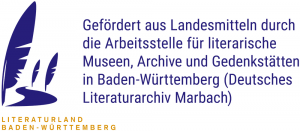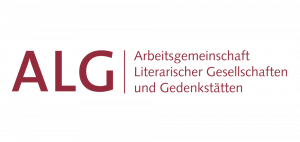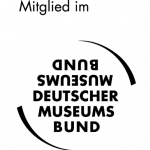Faust Museum
Museum Educational Offers
School and the Faust Museum
Our offers for the learning and teaching of Faust are aimed at lecturers, teachers, students and pupils of all school types.
The following museum educational formats are ideas that can be tailored to the respective needs, requirements and previous knowledge.
Please feel free to ask us about any of our offers by e-mail or by phone (+49) 7043 95 16 10.
Museum educational offers for teachers – seminars and training courses
A large number of middle and high school teachers, even primary school teachers, read and discuss Goethe’s Faust I with their pupils – also independently of the guidelines of the school syllabus.
As an extracurricular place of learning, the Faust Museum/Faust Archive of the town of Knittlingen brings Faust – often perceived as dusty or outdated – to life in a modern, lively and versatile way through exhibits and various media.
Our seminar is aimed at student teachers and trainee teachers, but also teachers who are curious about new approaches, ways and focal points of teaching Faust. We’re focused on conveying that literature can be fun:
How can one interpret Faust? Why did Goethe conceptualise his Gretchen the way he did? What freedom of design did he leave in the text? How can pupils be made aware of the poetry and conciseness of Goethe’s language? What does a sentence like “… whatever holds the world together in its inmost folds” mean?
We present and run through ways of helping pupils to actively and creatively approach the subject matter. We are of the opinion that creative offers are indispensable in order to do justice to the complexity, the versatility and the depth of meaning of the subject.
Of course, we respond to the impulses of the participants: in consultation with you, we set goals and focal points, which are then collectively worked on for different development paths of the discussion.
As the historical site and origin of the Faust legend, Knittlingen brings the myth and one of the most central works in literary history to life with its Faust Museum and Faust Archive.
Offers for pupils
We offer pupils from nursery school age up to the Abitur (A-levels) various opportunities to get to know Faust.
Pupils can work on a guided tour of the Faust Museum as part of a presentation, for BLL (Special Learning Achievement) or GFS (Equivalent Assessment of Learning Achievement).
The focus of the tour can be on a particular section of the museum or an overview of all the rooms. The special exhibitions in the Faust Archive Gallery also offer a wide scope for this. In addition, museum educational and curatorial tasks can be exciting topics for such learning achievements.
The student museum guides receive advisory support from the Faust Museum/Faust Archive team. Both the library and the lecture hall are available for preparation and follow-up.
Museum educational offers – workshops
Different formats are offered depending on the class level, time and teaching objective.
The basis is a 30 to 60-minute tour of the Faust Museum and the Faust Archive, including the library, whereby focal points can be set at the teacher’s request and specification.
Afterwards, a topic can be chosen to approach the subject of Faust in a creative way.
Different subjects are addressed: German, history, but also history of science.
After discussing a focus, scenes from Faust films can be shown and examples of musical Faust adaptations can be listened to. Afterwards, the pupils are asked to be proactive and creative: a discussion about the different Faust characters with role-playing or creative writing – the composition of a Faust scene, applied to current situations. Guiding questions could be: Where can the devil’s pact be found today? What are the motives for the alliance with evil today? And how does evil manifest itself? Who is Mephisto? How could the events be staged in the theatre? But also: How should a museum present Faust?
The pupils can slip into the role of an actor, a dramaturge, a curator, a writer, a journalist, a politician, etc. All this opens their eyes for the design of the play. All this opens their eyes to the design of the subject matter – and allows the story itself to become something familiar.
In this way, a personal reference to this old and yet so relevant topic is created, according to the motto: Make your own Faust!
All these offers can be realised in the lecture hall of the Faust Archive, which has about 60 seats.



